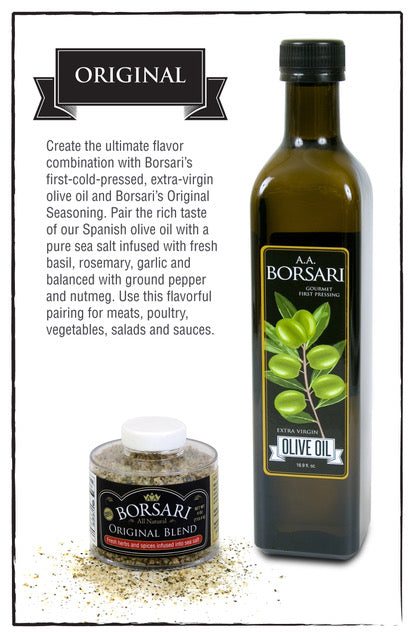Extra Virgin Olive Oil Benefits: A Simple Addition to Boost Your Immune System
Extra Virgin Olive Oil Benefits: A Simple Addition to Boost Your Immune System
Blog Article
Discovering the Various Kinds of Olive Oil and Their Usages, Including Additional Virgin Olive Oil
The exploration of olive oil incorporates a diverse series of kinds, each offering distinct flavors and culinary applications. Bonus virgin olive oil, renowned for its exceptional high quality and health and wellness advantages, functions as a staple in many kitchens, yet it is just one aspect of this multifaceted ingredient. extra virgin olive oil benefits. Other selections, such as refined and pure olive oils, likewise warrant interest for their special properties and usages. Recognizing these distinctions can dramatically affect both food preparation strategies and taste profiles. What, after that, should one think about when selecting the ideal olive oil for a particular culinary venture?
What Is Olive Oil?
Stemmed from the fruit of the olive tree, olive oil is a staple in Mediterranean food and a vital ingredient in various cooking applications. This functional oil is created by pushing entire olives, resulting in a fluid that differs in color, aroma, and flavor relying on the kind of olives made use of, the area of cultivation, and the extraction process. Olive oil is primarily made up of monounsaturated fats, specifically oleic acid, which is known for its possible health and wellness benefits, including anti-inflammatory residential or commercial properties and cardio support.
In addition to its cooking usages, olive oil has a long history of application in standard medication and skincare, owing to its abundant antioxidant material (extra virgin olive oil benefits). The oil is often used in dressings, marinades, and for cooking methods such as sautéing and roasting. Its distinct taste account can enhance the preference of different dishes, making it an important ingredient for both home cooks and professional cooks
Additionally, olive oil is celebrated for its duty in the Mediterranean diet, which is associated with countless health and wellness benefits. As awareness of these benefits expands, olive oil remains to obtain popularity worldwide as a fundamental element of a healthy and balanced way of life.
Kinds of Olive Oil
Understanding the numerous kinds of olive oil is vital for both culinary lovers and health-conscious consumers. Olive oil is identified mainly based on its removal approach and top quality, which dramatically influences its flavor, health and wellness, and aroma benefits.

Light olive oil, regardless of its name, refers to a lighter flavor and not lower calories. It is perfect for those seeking a much more refined taste in sauces and dressings. Furthermore, there are flavorful olive oils instilled with herbs, spices, or citrus, which can boost dishes without the need for added seasoning.
Each kind of olive oil serves particular culinary purposes, and understanding these distinctions allows consumers to make informed options that align with their cooking styles and health and wellness goals.
Extra Virgin Olive Oil
Bonus virgin olive oil (EVOO) is widely considered the best quality olive oil available, well known for its rich flavor and many health benefits. To be identified as added virgin, the oil needs to be produced from fresh olives utilizing mechanical procedures, without making use of solvents or too much warm. This careful technique preserves the oil's natural flavors, anti-oxidants, and healthy and balanced fats, resulting in an item with a reduced acidity degree of less than 0.8%.
EVOO is plentiful in monounsaturated fats, especially oleic acid, which is connected to lowered swelling and improved heart health and wellness. It likewise contains polyphenols, powerful antioxidants that may supply safety results versus persistent diseases. The flavor profile of EVOO can differ substantially relying on the olive variety and region of production, varying from verdant and fruity to durable and sharp.

Culinary Use Olive Oil

In food preparation, olive oil can be utilized for sautéing, pop over to this site roasting, and cooking, offering a much healthier alternative to butter or other fats. Its high smoke factor makes it suitable for various cooking methods, while its anti-oxidants add to a heart-healthy diet regimen. Showering olive oil over ended up recipes, such as pasta, fish, or barbequed veggies, can boost flavors and include a touch of elegance.
In addition, olive oil plays a considerable function in baking, where it can change conventional fats in dishes for bread and breads, imparting dampness and a subtle taste. It additionally functions as a base for infused oils, enabling cooks to trying out flavors such as garlic, natural herbs, or chili, better broadening its cooking potential. Overall, olive oil's convenience makes it crucial in both home and professional cooking areas.
Choosing Top Quality Olive Oil
When selecting high quality olive oil, it's necessary to take into consideration several crucial aspects that influence the item's fragrance, health and wellness, and taste benefits. Most importantly, select added virgin olive oil (EVOO), which is acquired from the first cool pressing of olives and consists of the highest degrees of anti-oxidants and advantageous substances. Seek oils that are licensed by acknowledged companies, as this usually makes certain adherence to stringent quality criteria.
The packaging also plays a considerable duty in preserving the oil's stability. Select oils kept in dark glass bottles or tins to safeguard versus light degradation. Take note of the harvest day; fresher oils offer premium taste and nutritional value, so choose items that are within 18 months of their harvest.
Be conscious of the preference; a great quality olive oil should have an equilibrium of fruity, bitter, and sharp notes, suggesting its splendor and intricacy. By examining these elements, you can ensure you are choosing the ideal olive oil for your culinary needs.
Conclusion
In recap, the exploration of numerous kinds of olive oil discloses distinct qualities and applications, with extra virgin olive oil representing the peak of quality due to its low acidity and high antioxidant material. Comprehending the different ranges of olive oil enables for notified choices in cooking techniques, advertising much healthier techniques while improving the general gastronomic experience.
Derived from the fruit of the olive tree, olive oil is a staple in Mediterranean cuisine and a crucial ingredient in different cooking applications.The most common types of olive oil include refined olive oil, pure olive oil, and light olive oil.Bonus virgin olive oil go to these guys (EVOO) is widely pertained to as the highest quality olive oil readily available, well known for its abundant flavor and many wellness benefits. Opt for additional virgin olive oil (EVOO), which is acquired from the first cold pressing of olives and contains the greatest levels of anti-oxidants and useful check substances.In recap, the expedition of different types of olive oil reveals distinctive features and applications, with added virgin olive oil representing the pinnacle of quality due to its low acidity and high antioxidant material.
Report this page